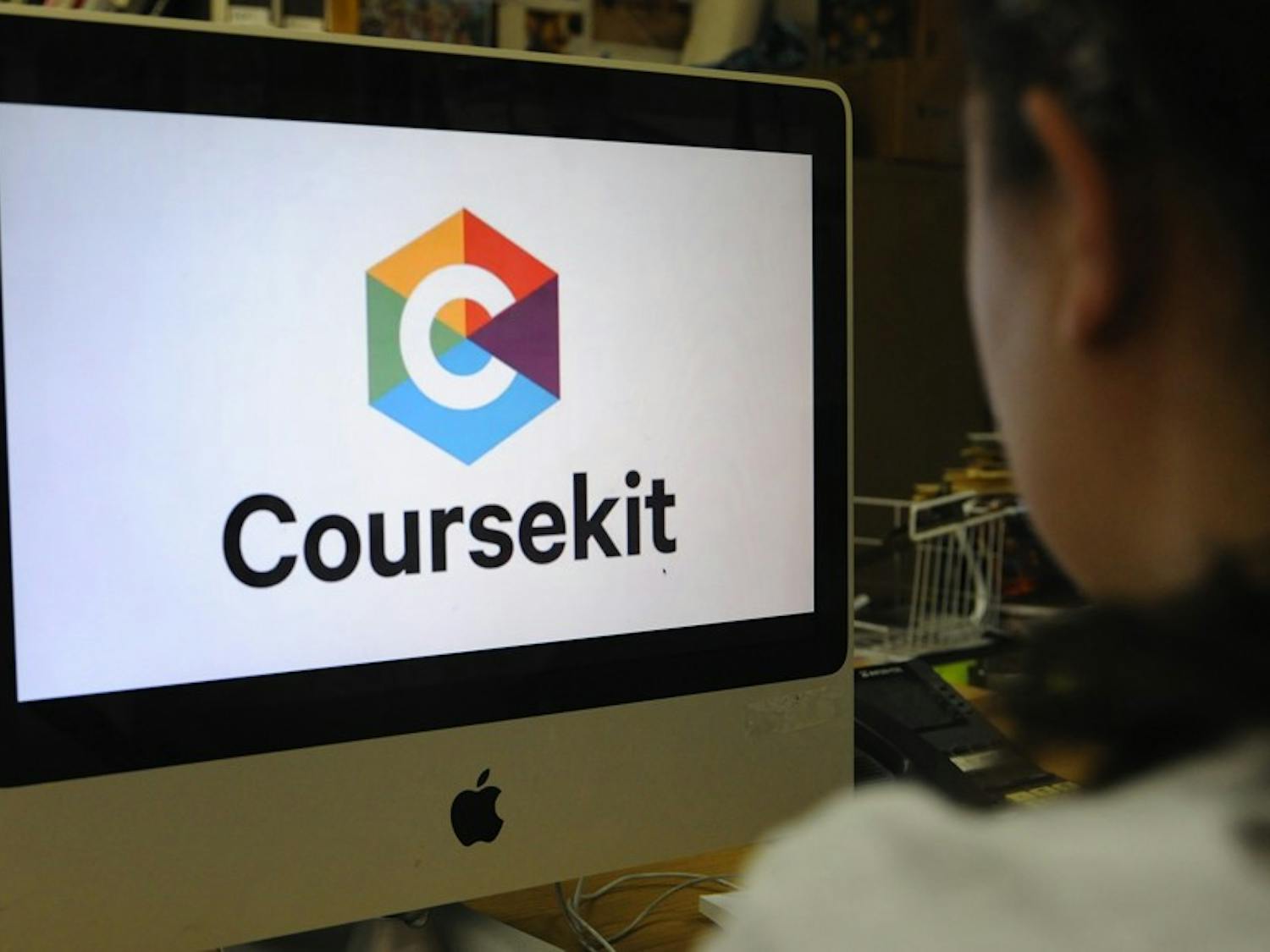Blackboard’s days may be numbered. Three Penn students have designed a new online learning-management system — Coursekit — and they believe it will fundamentally change the way college courses are taught.
Coursekit, which went live in February, already has 200 users for about 20 courses, said Wharton sophomore Joseph Cohen, who co-founded the website.
The site offers a calendar, syllabi, resources and a “class wall,” where students can post comments and hold discussions. The difference between this site and others such as Blackboard and webCafé, Cohen said, is its “social layer.”
Cohen, along with Wharton and Engineering junior Dan Getelman, a former Daily Pennsylvanian online developer, began working on Coursekit in June 2010 with the mission of replacing printed course syllabi. However, in early December, the project soon evolved into developing an entirely new website with the help of Engineering sophomore Jim Grandpre.
Created 14 years ago, Blackboard is “the worst piece of software ever designed,” according to assistant professor of graphic design and fine arts Sharka Hyland, who opts to use Coursekit for her class on typography.
This may be due to the “poor user experience” Blackboard offers, Wharton freshman Jose Bermudez said. “Each class has multiple tabs, and you never know what each one is for.”
So far, the University has no plans to buy Coursekit. Director of Wharton Computing Alec Lamon said that he is “impressed with … their product,” but that it is difficult to compare the site to other products because it is not finished yet. For example, the site lacks a grading system and privacy settings.
“Obviously [the lack of privacy] is a problem right now,” Hyland said. “I can’t put heavily copyrighted material onto the site because it is not private. That will change in the future.”
For now, Cohen and Getelman are working on building a support network for the site. They “incentivized Coursekit” by paying students $200 to manage a course on the site, which involved posting syllabi and updating class information regularly.
Although Cohen would not disclose the total cost of these incentives which he and Getelman are paying out of their own pockets, he said there are about 50 courses that have managers. Hyland is the only professor who manages her own site.
In the next month, Coursekit will open to other universities, Cohen said, adding that the site’s simplicity appeals to both students and professors.
“Whenever I tried to use Blackboard, I got so frustrated that I gave up,” Hyland said. “I can use Coureskit much more easily.”
Students in Hyland’s course utilize Coursekit by posting images of signs and posters on the “wall” and then discussing them.
“It definitely changed the dynamic of the course,” said College sophomore Alex Luzi, who is enrolled in Hyland’s class.
However, not all students see the need for a change.
“I don’t mind Blackboard,” College freshman Samantha Field said, adding that “it’s frustrating having to get used to new sites.”
“Personally, I like webCafé,” Wharton freshman Marissa Gitler said, referring to Wharton’s designated learning management system. “It’s nice and organized.”
WebCafé is “pretty easy to navigate,” Wharton freshman Marissa Solomon agreed.
Bermudez, however, would like to see uniformity among online learning management systems used between the schools.
“I use webCafé for three of my courses and Blackboard for another,” Bermudez said. “It would be easier to have one site to go to.”






